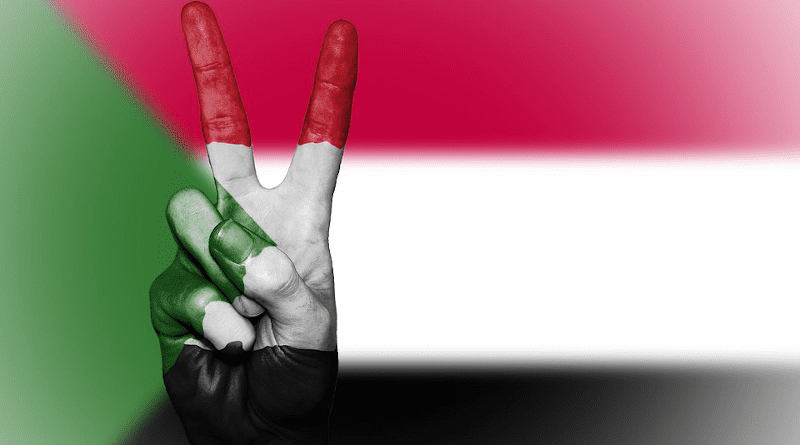Sudan’s Generals Should Serve The People, Not Endanger Their Lives – OpEd
By Arab News
By Mohamed Chebaro*
The scramble by foreign diplomats and citizens to flee Sudan’s violence is a bad omen for the country. It points to worse days to come for a nation that managed to end its 30 years of dictatorship in a popular uprising in 2019, only to fall victim once again to military generals vying for power and putting the country’s fate and the future of its people on the line.
The rapid flight of foreign missions and their staff has heightened fears among Sudanese that their country will be abandoned to its fate, with the two generals and their proxies fighting it out and therefore sidelining any chance of emergency mediation by Western, Arab or even African powers.
There must have been enough information — and maybe some security intelligence — at the hands of international decision-makers that made clear the need to rush to evacuate their embassies and nationals. They must have concluded that the situation had become untenable, curtailing any efforts to preserve lines of contact with both warring parties and persuade them to agree to a lasting humanitarian ceasefire and maybe a framework to end the hostilities permanently. All indicators point to the fact that, after 10 days of violence, Sudan has been abandoned to its fate, meaning its people will have to depend only on themselves to seek safety either inside the country or abroad, while the militants and the military continue to try to eliminate each other.
If the coup of October 2021 showed how fragile the civilian rule was in Sudan, the fighting that broke out between the forces loyal to army chief Abdel Fattah Al-Burhan and the powerful paramilitary Rapid Support Forces of his deputy-turned-rival Mohammed Hamdan Dagalo demonstrate the end of dual military control. It also signals the end of the new Framework Agreement to transition the country to civilian rule, which was due to be signed in early April. Two sticking points have plagued that process since the start and led to its doom. The first was about how to integrate the RSF into the armed forces and the second was no less thorny, as it sought to find the mechanism necessary to make the army answerable to the civilian leadership.
The Sudanese have watched anxiously as the US, UK, France, Germany, Japan and China, as well as Saudi Arabia and Egypt, among others, rushed to extract their diplomats and some of their citizens. Meanwhile, the fighting has claimed hundreds of lives and injured thousands — and, most importantly, it seems to have dashed the democratic aspirations of the Sudanese people.
Once again, Sudan is in the grip of the military, which has controlled the country for 52 of its 67 years of independence. The military is deeply entrenched in key aspects of the Sudanese economy, such as agriculture, industry and mining. Since the uprising against Bashir’s rule, the army has played the role of mediator between the country’s various forces, which have been looking for a transition formula that would return civilian rule.
Over the past four years, the people have remained suspicious of both of the military leaders who claim to speak in their name. Al-Burhan has been reproached for his former closeness to Bashir, for his Islamist ties, for the fact he did not do enough to dispel the lack of faith in the military, and for his poor approach to empowering civilian rulers. Many have been concerned about the release of some of his Islamist allies and the reappointment of officials from the Bashir era.
Dagalo, on the other hand, is no less dangerous to the country’s future. The head of the RSF has progressed from his humble origins as a camel herder to a commander of the notorious Janjaweed militia in the Darfur region and ultimately to a general who claims to be trying to preserve the will of the Sudanese people after the toppling of Bashir. His access to the country’s gold and other natural resources, in addition to his links to mercenary actors like the Russian Wagner Group and eastern Libyan strongman Khalifa Haftar, are no secret and have all served to embolden him.
Like Al-Burhan, Dagalo’s fate will be sealed by the outcome of the fight for control of the capital Khartoum. Compromise and realism seem to have been in short supply in Sudan, just as in other conflicts around the world. Reforming the country’s institutions after decades of Bashir rule was never going to be easy, as the deep state, the bureaucracy and the armed forces would challenge any reforms aimed at strengthening the rule of law and weeding out corruption, while implementing oversight and accountability.
The joint civilian-military formula is unlikely to return as an option to get Sudan back on the path toward a more stable future. It seems that both parties to the conflict, their regional allies and the international community need to go back to the drawing board once the hostilities have subsided to try to produce a new roadmap that might curb the power of the armed forces and the RSF and allow a stronger constitutionally backed civilian body to emerge. Then, the people might finally be able to drag the country back to stability using a formula whereby the military is no longer fragmented among rival groups or strongmen. Instead, the military’s key task must be to preserve the unity and sovereignty of the country and to serve the people, not endanger their lives and livelihoods.
• Mohamed Chebaro is a British-Lebanese journalist, media consultant and trainer with more than 25 years of experience covering war, terrorism, defense, current affairs and diplomacy.

